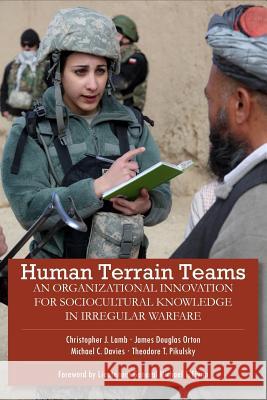Human Terrain Teams: An Organizational Innovation for Sociocultural Knowledge in Irregular Warfare » książka
Human Terrain Teams: An Organizational Innovation for Sociocultural Knowledge in Irregular Warfare
ISBN-13: 9780988864207 / Angielski / Miękka / 2013 / 308 str.
This study explains the performance of Human Terrain Teams, why the large majority of commanders found them useful, and why collectively they did not ameliorate-much less reverse-growing cross-cultural tensions between U.S. forces and Afghans. It examines the tremendous challenges the Human Terrain Team program faced in starting and rapidly expanding a non-traditional military capability, and why some challenges were met successfully while others were not. First, a historical analysis explains how external forces and management decisions affected team performance. An organizational analysis then explains the variations in team performance by examining the teams with variables substantiated by previous studies of small cross-functional teams. Finally, all available commander observations on Human Terrain Team performance are analyzed to better determine why commanders were satisfied or dissatisfied with their teams. The insights from the three analyses-historical, organizational and commander assessments-are then integrated. The results demonstrate that Human Terrain Teams had to overcome numerous organizational limitations to perform well, but that they were able to meet the expectations of commanders who did not fully appreciate the optimum role the teams could play in an integrated counterinsurgency strategy.











